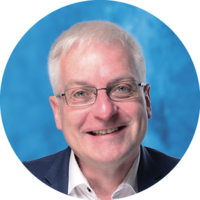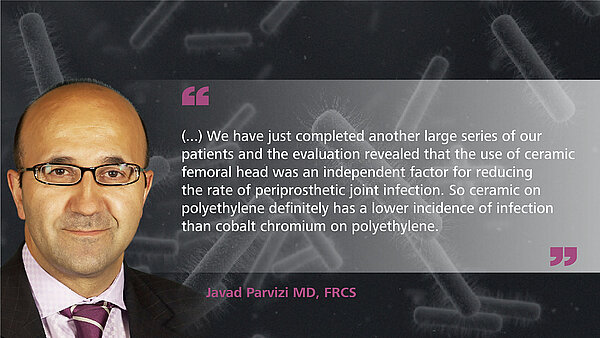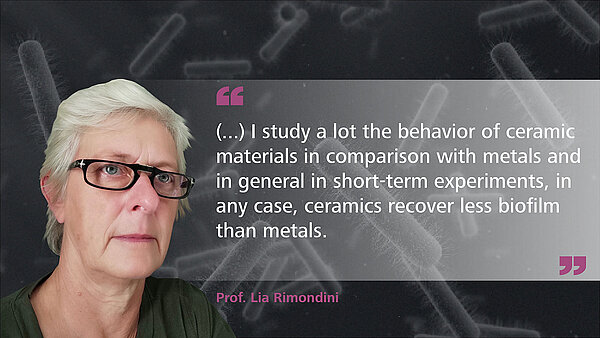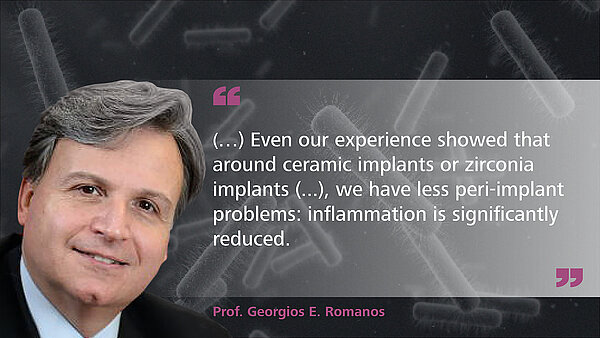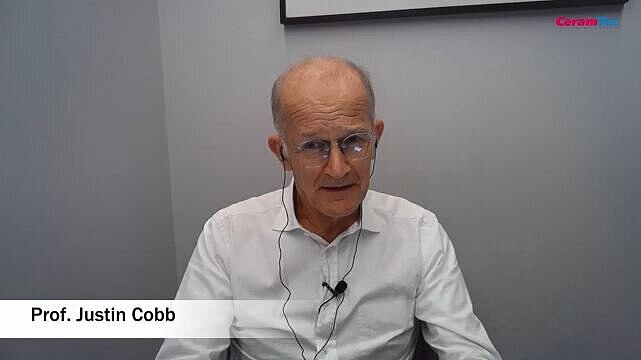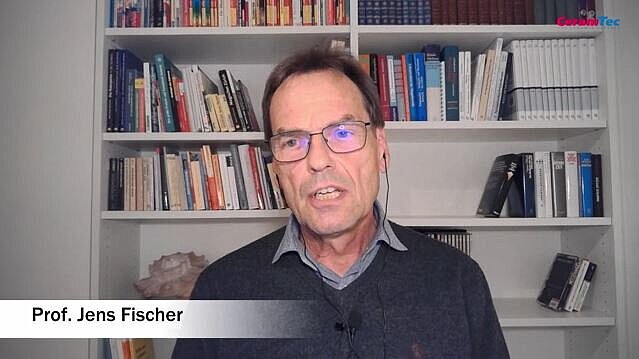Orthopedics Meets Dentistry
From implantation to chronic inflammation: What slipped through the cracks?
One orthopedic surgeon, one implantologist and one biologist will explore this complex question, using current evidence and knowledge gained from their unique backgrounds and experiences in the disciplines of orthopedics, dentistry, and clinical research.
The Panelists
Orthopedics Meets Dentistry brings together the disciplines of orthopedics and dentistry again in 2023 to rise to the challenge of sustained chronic low-grade inflammation around medical implants.
A ‘which came first the chicken or the egg?’ question: By weakening the immune system, does chronic inflammation predispose, cause, or exacerbate a disorder? Or does the disorder trigger an onslaught of (chronic) inflammation? Or are both true, and fueling a vicious circle of inflammation?
The damaging consequences of chronic inflammation to the overall health of a patient generally and to the survival of implants specifically are common to both disciplines. Our experts will illustrate why inflammation is more prevalent in some patients and explain the role of implant material in limiting — or exacerbating —, as the case may be, inflammation and ultimately implant survival.
Under discussion are the risk factors for persistent chronic inflammation, the complexity of early detection and the degree of awareness by both orthopedic surgeons and implantologists for non-acute sterile inflammatory processes. The relative differences and similarities between the two disciplines will guide the answers to these challenging questions on the common ground of implantology.
Orthopedics Meets Dentistry provides a valuable open discussion space for debate and consideration between the distinctly different disciplines that share in the challenges of medical implantation.

Prof. Alister Hart FRCS (Orth), MD
Orthopedic Surgeon
Royal National Orthopedic Hospital, London, UK
Consultant Orthopedic Surgeon and Professor of Orthopedic Surgery, specializing in hip problems at the Royal National Orthopedic Hospital NHS Trust (RNOH) and Cleveland Clinic London. He is director of implant science at the RNOH, where he is part of a multidisciplinary team that reviews 500 patients per year with complex joint replacement problems. He is the co-founder and director of the London Implant Retrieval Center, the world’s largest centre for analysing failed hip replacements. His research has featured in the media and in 2009 he was nicknamed the “hospital hip detective” by the BBC for his work on treating painful hip replacements.

Prof. Ralf Smeets MD
Oral and Maxillofacial Surgeon
University Medical Center, Hamburg-Eppendorf, Germany
The Vice Head of the Department of Oral and Maxillofacial Surgery and the Head of the Division of 'Regenerative Orofacial Medicine’ at the University Medical Center Hamburg-Eppendorf, Germany. He studied medicine and dentistry in Aachen where he specialized in oral and maxillofacial surgery. In addition to his medical studies, he also studied economics at the University of Hagen.

Prof. Catherine Van Der Straeten MD
Clinical Research Expert
Sciensano, Belgian National Institute for Health, Ixelles, Belgium
Former Head of the Institute for Health Research and Innovation at Ghent University Hospital, Belgium, where she was also a Hospital Clinical Professor, and is now continuing to share her expertise as a consultant in health research and innovation. She is a rheumatologist and clinical scientist by training and for more than 30 years, has coordinated and conducted international orthopaedic surgery research on bone and tissue regeneration focusing on research and development of implants and the clinical results of joint arthroplasty interventions.

Dr. Niklas Keller, Moderator
Simply Rational, Berlin, Germany
A research associate at the Clinic for Anesthesiology and Intensive Care Medicine at the Charité University Medicine, Berlin, and an associated scientist at the Max Planck Institute for Human Development, Berlin, as well as the ‘Decision Engineering and Decision Sciences’ lab at the Michigan Technological University. He is a co-founder of the Max-Planck Institute spin-off Simply Rational which supports organizations to measurably improve decision or advice on topics related to improving decisions or help you to make better decisions.
FAQ
A virtual panel discussion which brings together experts from the fields of orthopedics and dentistry to answer key questions related to implantation.
You can register using the registration link on this page, an email will be sent to your address confirming your registration.
Yes, Orthopedics Meets Dentistry is a live virtual event. A recording will be available on our YouTube channel after the event.
Yes, during Orthopedics Meets Dentistry viewers are encouraged to send questions to our panelists and interact with the event via our online voting portal.
Join us at 7pm (CET) November 16, 2023
Yes, our virtual event is available to registered guests. A recording will be available on our YouTube channel after the event.
Yes, Orthopedics Meets Dentistry will be available on all devices. We recommend watching on a tablet or larger screen for optimum viewing.
Our panelists are Prof. Alister Hart MD, Prof. Ralf Smeets MD and Prof. Catherine Van Der Straeten MD. Details of their expertise are available here.
Orthopedics Meets Dentistry 2022
What drives medical decision making:
Evidence or Intuition?
“If risks are known, good decisions require logic and statistical thinking. If some risks are unknown, good decisions also require intuition and smart rules of thumb”(Gigerenzer, 2014).
The question of how to select the best treatment option for a patient in the age of evidence-based medicine can often mean medical professionals find themselves trapped between two conflicting systems. From one side, new evidence is being generated at an increasing rate, covering many situations, with studies and data to back medical decision-making.
From the other side, despite all this available evidence, clinical decision-making continues to be beset by a myriad of unexpected uncertainties, both positive and negative. In such situations, clinical intuition seems to play a necessary and important part in medical decision-making.
Join our live virtual discussion ‘Orthopedics Meets Dentistry’ and dive in together with our panelists to investigate the role of evidence, intuition, risk assessment and perceived safety in decision making in orthopedics and dental implantology.
Combating Infection: The Role of Implant Materials
Implant infection is a devastating complication with severe health and socioeconomic implications. Approximately 1-2% of all patients undergoing joint replacement develop a periprosthetic joint infection (PJI) following surgery. In dental implantology, peri-implantitis is also a challenge with a prevalence around 20% and if not treated properly ending with bone or even implant loss. Physicians, implantologists and researchers from both disciplines are exploring multiple directions to understand why implants get infected and what role the implant materials play.
Dr. Dominik Pförringer has asked the interdisciplinary faculty Prof. Javad Parvizi, Prof. Lia Rimondini and Prof. Georgios Romanos their view on this topic. Watch below their answers to some of the questions.
*The presented authors’ views and opinions are solely those of the authors of these publications.
Orthopedics Meets Dentistry 2020
Is a world free of metal implants in orthopedics and dentistry conceivable? Dr. Dominik Pförringer's asked the interdisciplinary faculty Prof. Justin Cobb, Prof. Corrado Piconi and Prof. Jens Fischer their view on this topic. Watch below their answers to some of the questions.
*The presented authors’ views and opinions are solely those of the authors of these publications.
„Do you see that all doctors, being orthopedics, implantologists or dentists, are they ready for ceramics yet?"
Prof. Corrado Piconi, Professor for biomaterials for orthopedic and dental. Orthopedics, Faculty of Medicine of the Catholic University, and Senior Associate in (ISTEC-CNR), Faenza.





